IIR at COP29 in Baku: Week 1 in review
The first week of COP29 in Baku, Azerbaijan, brought together global leaders, scientists, and industry stakeholders to tackle pressing climate issues. Among the key participants, the International Institute of Refrigeration (IIR) played an active role, engaging in critical discussions and fostering collaborations to advance sustainable refrigeration and energy efficiency as part of the climate agenda.
A Platform for Collaboration: IIR and TERI Joint Booth
The IIR partnered with The Energy and Resources Institute (TERI), a prominent Indian think tank, to host a joint booth at COP29. This collaboration highlighted the shared commitment of both organisations to sustainable refrigeration and climate action, providing an avenue for dialogue on innovative solutions. The booth showcased ongoing work, facilitated knowledge exchange, and reaffirmed the IIR’s dedication to global partnerships in research and development.
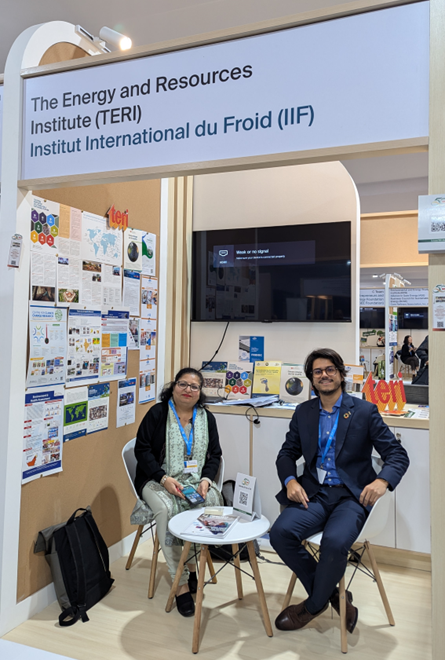
Marco Duran (IIR) with Suruchi Bhadwal (TERI)
World Leaders Climate Action Summit and Discussions on Methane and Financing
On 12 November, the IIR attended the official opening ceremony of the World Leaders Climate Action Summit, with representations of the heads of state. Opening statements were delivered by President of the Republic of Azerbaijan Ilham Aliyev, Secretary-General of the United Nations António Guterres, and Mayor of Kuala Lumpur and former Executive Director of the United Nations Human Settlements Programme Maimunah Mohd Sharif.
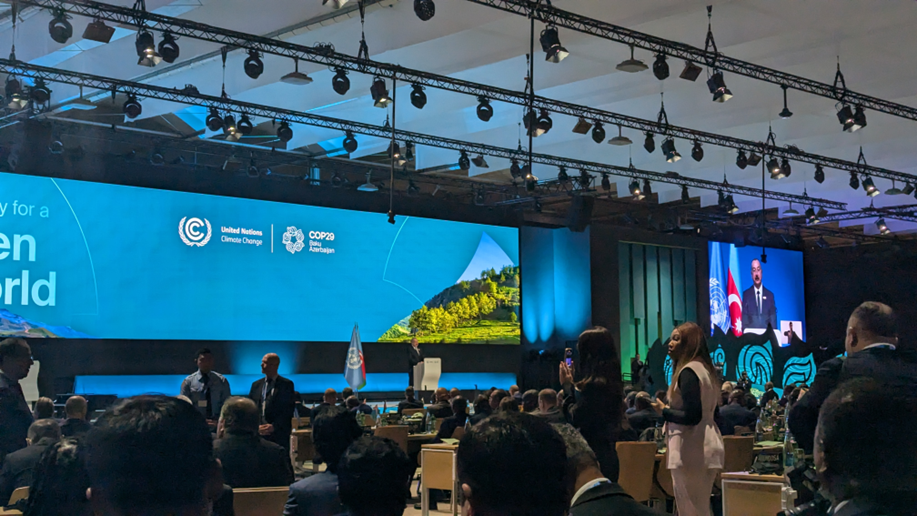
Later, the IIR also took part in the COP29 plenary on Methane and Non-CO2 Greenhouse Gases, a session emphasising the importance of mitigating methane emissions. The Global Methane Pledge, a cornerstone of the session, underscored the critical role of addressing non-CO2 gases, including HFCs, which are responsible for up to half of total greenhouse gas emissions.
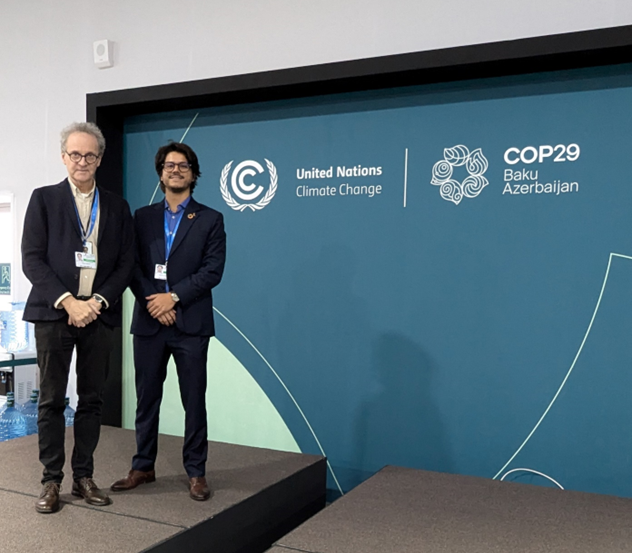
Both events were attended with Petter Nekså (SINTEF).
The second day was also marked by a joint statement issued by multilateral development banks on scaling up financial support to developing countries in order to achieve climate objectives. They pledged a 25% increase in direct climate financing from their previous targets, with the objective of mobilising $ 120 billion by 2030.
Learn more : https://www.worldbank.org/en/news/press-release/2024/11/12/multilateral-development-banks-to-boost-climate-finance
Insights from RINGO and Regional NDC Implementation
Midweek, the IIR joined the Research and Independent Non-Governmental Organisations (RINGO) meeting as a guest participant. The meeting provided updates on negotiation progress and explored the role of research in advancing UNFCCC Technology Mechanisms.
In a related event titled “NDCs 3.0 Preparation and Implementation: Lessons from the Region”, co-organised by UNFCCC, UNEP, UNDP, and the NDC Partnership, the relevance of cooling technologies in achieving Nationally Determined Contributions (NDCs) was emphasised. Tools developed by organisations like IRENA were showcased, demonstrating their value in supporting electrification and raising climate ambitions globally.
Advancing Cooling Efficiency: A Focus on Energy
On November 14, the IIR took part in a key side event, “Cooling the Heat: Enhancing Efficiency of the Refrigeration and Cooling Sector”, organised by the Ozone Secretariat in partnership with UNDP, UNIDO, MLF, GIZ, and UNEP. This session brought together technical experts and policymakers to address energy efficiency challenges in the cooling sector.
The objective of the side event was to provide a platform for stakeholders to share knowledge, discuss challenges, and explore solutions to enhance energy efficiency in cooling technologies. It also aimed at fostering collaboration and integrated approaches essential for realising the dual potential of the Montreal protocol for climate mitigation and climate adaption through sustainable cooling solutions
Marco Duran, Head of Policy and Global Partnerships set the scene and highlighted why sustainable refrigeration and cooling are key for the climate agenda.
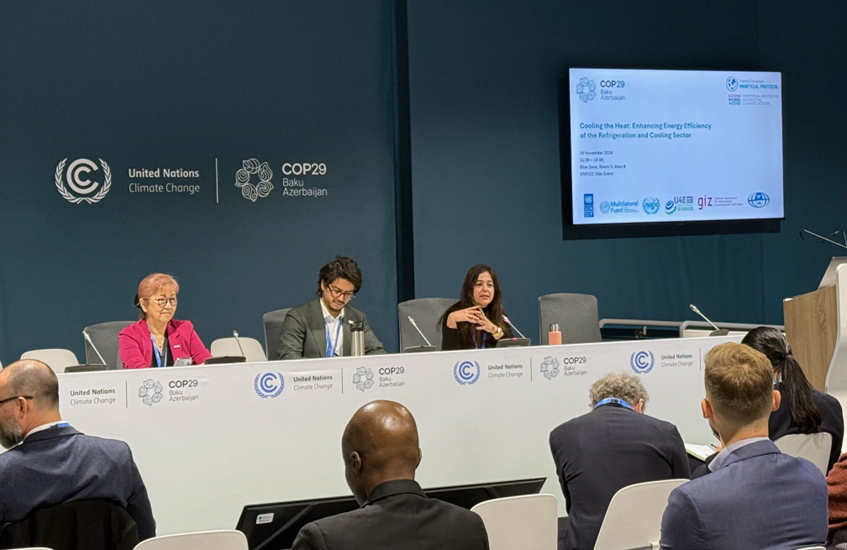
Megumi Seki (Executive Secretary, Ozone Secretariat), Marco Duran (IIR), Shikha Bhasin (Senior Advisor, UNEP)
Energy Efficiency in the Global South: A Key Takeaway
To round off this first intense week, the IIR organised on Friday 15 November an engaging side event in collaboration with Alliance for an Energy Efficient Economy (AEEE), CLASP, and Sustainable Energy for All (SEforALL), on “Tracking Efficiency Progress in the Global South”.
The session brought together thought leaders, policymakers, and industry stakeholders to discuss frameworks and innovations for tracking and accelerating energy efficiency progress, particularly in the Global South.
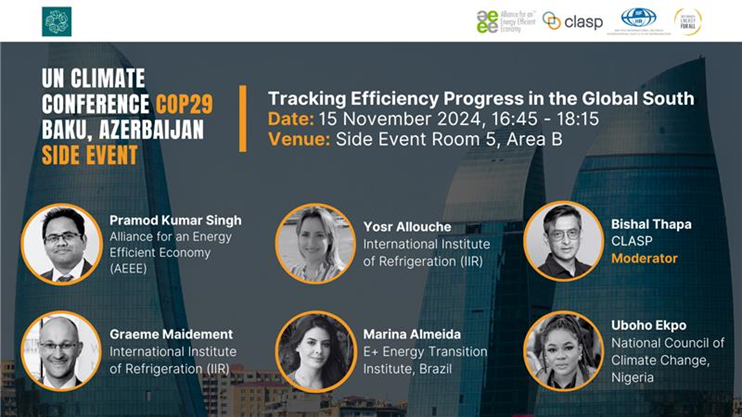
Yosr Allouche, Director General of the IIR, set the context in an introductory speech before giving way to the panel, moderated by Bishal Thapa (CLASP):
- Graeme Maidement (President, IIR Commission E2) stressed that accurate tracking mechanisms are essential for aligning national energy efficiency targets with global climate commitments. He also shared his perspectives on the challenges and opportunities faced by the UK government in tracking energy efficiency progress.
- Marina Almeida (E+ Institute, Brazil) presented successful case studies from Southeast Asia and Latin America, illustrating how well-designed tracking systems can support climate resilience.
- Uboho Ekpo (National Council on Climate Change, Nigeria) and Pramod Singh (AEEE) highlighted the role of public-private partnerships and financial mechanisms in driving energy efficiency adoption. They emphasised the need for collaboration to overcome challenges in the Global South.
The side event highlighted several critical takeaways that underscore the importance of energy efficiency in addressing the climate crisis:
- Importance of Tracking: Establishing efficient tracking mechanisms is vital to achieving energy efficiency targets.
- Best Practices: Case studies demonstrated successful frameworks, offering scalable solutions for diverse contexts.
- Cross-Sector Collaboration: Public-private partnerships emerged as a cornerstone for accelerating progress and fostering innovation.
- Policy and Finance: Strategic use of financial tools and regulatory frameworks can catalyse energy efficiency initiatives across sectors.
- Long-Term Engagement: The event laid the groundwork for sustained collaboration and dialogue beyond COP29, ensuring ongoing focus on energy efficiency as a key climate strategy.
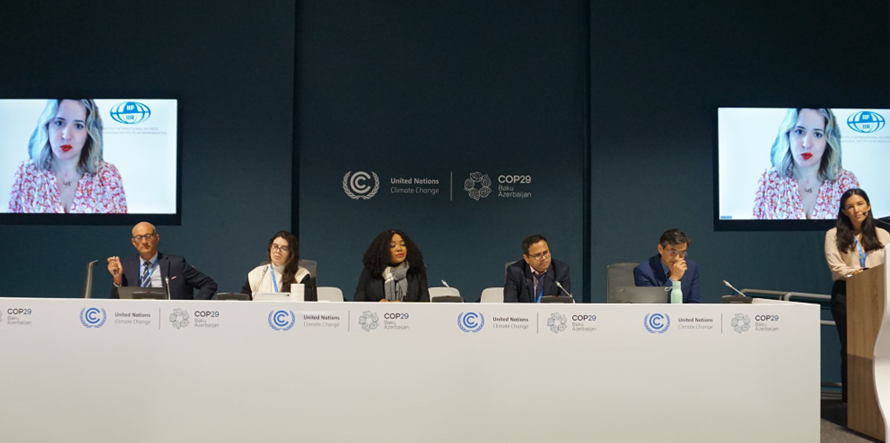
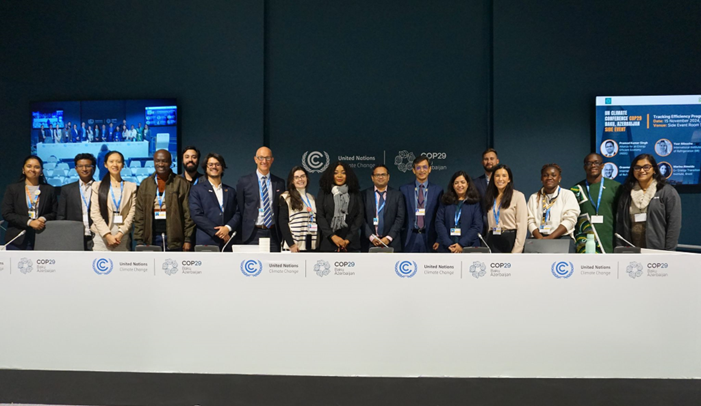
Looking Ahead
The IIR’s active participation in COP29 Week 1 highlighted the critical role of refrigeration and cooling in achieving climate goals. From advocating for energy efficiency to fostering international collaboration, the institute laid a strong foundation for continued progress in the weeks ahead and beyond. As the summit progresses, the IIR remains committed to driving impactful climate solutions through innovation and dialogue.
